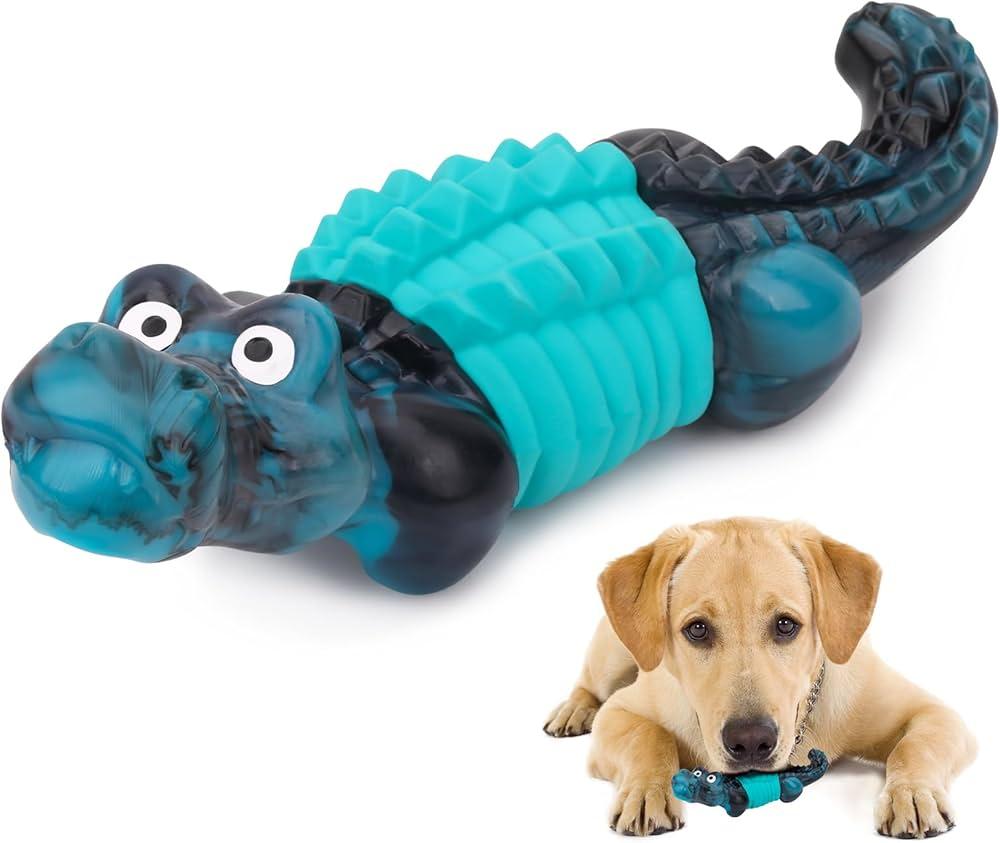Title: ? Understanding Your Canine’s Needs
Introduction:
Welcome to the wonderful world of wagging tails and playful paws, where understanding the needs of your furry companion is key to a happy, healthy life together. As a loving dog owner, you may often find yourself pondering the essentials for your pet’s well-being. Among the myriad of questions, one that frequently arises is: Are chew toys necessary for all dogs? While some dogs may seem content without them, chew toys play a crucial role in the lives of many canines. In this article, we’ll explore the importance of chew toys, their benefits, and how to determine if they are a necessity for your four-legged friend. Join us as we delve into the world of chew toys, offering guidance to ensure your dog leads a fulfilled and joyful life.
Understanding the Importance of Chew Toys for Dogs
Chew toys play a vital role in the well-being and happiness of our canine companions. They offer more than just a distraction; they are essential tools for promoting healthy teeth and gums. As dogs chew, the mechanical action helps reduce plaque and tartar buildup, which can lead to dental issues. Furthermore, chew toys provide mental stimulation, which is crucial for preventing boredom and the associated behavioral problems that may arise from it. A bored dog is often a destructive dog, and chew toys can be a simple yet effective solution to keep your pet engaged.
Additionally, chew toys cater to a dog’s natural instinct to chew. This instinct is present in all dogs, regardless of their size, age, or breed. The benefits of providing appropriate chew toys include:
- Stress Relief: Chewing can help alleviate anxiety and stress, offering a calming effect.
- Teething Relief: For puppies, chew toys are invaluable for soothing sore gums during the teething phase.
- Training Aid: Chew toys can be used to reinforce positive behaviors and discourage unwanted ones.
While not every dog may seem enthusiastic about every type of chew toy, finding the right fit for your pet can make a world of difference in their daily life. Consider factors such as material, size, and durability to ensure you choose the best option for your furry friend.
How Chew Toys Contribute to Canine Health and Happiness
Chew toys play a vital role in promoting both the physical and mental well-being of dogs. These toys are not merely objects of distraction but essential tools that can enhance a dog’s quality of life. Physically, chew toys help in maintaining dental health by reducing plaque and tartar build-up, which can lead to more serious health issues if left unchecked. Additionally, they can serve as a substitute for natural behaviors such as chewing, which can prevent destructive habits from forming.
Beyond physical benefits, chew toys are invaluable for a dog’s emotional health. They provide mental stimulation, which is crucial for keeping dogs engaged and happy. When a dog chews, it releases endorphins, promoting a sense of calm and contentment. This is particularly beneficial for dogs prone to anxiety or stress. Consider these benefits of chew toys:
- Stress Relief: Chewing can alleviate boredom and reduce anxiety levels.
- Behavioral Support: Provides a healthy outlet for natural instincts, preventing unwanted behaviors.
- Dental Care: Helps clean teeth and strengthen gums.
By selecting the right chew toys, tailored to the size, age, and chewing habits of your dog, you can significantly contribute to their overall health and happiness.

Choosing the Right Chew Toy for Your Dogs Needs
Understanding your dog’s specific chewing habits and preferences is key to selecting the perfect chew toy. Dogs chew for various reasons, such as teething, boredom, or stress relief. Therefore, it’s essential to identify why your furry friend needs a chew toy. Consider the following factors to ensure you make the best choice:
- Size and Durability: Choose a toy that matches your dog’s size and chewing strength. A toy too small can be a choking hazard, while a too fragile toy may not withstand vigorous chewing.
- Material: Opt for materials that suit your dog’s needs. Natural rubber and nylon are great for aggressive chewers, while plush toys may be better for gentle chewers.
- Safety: Look for non-toxic materials and avoid toys with small parts that could break off and be ingested.
- Purpose: Select toys that offer mental stimulation, such as puzzle toys, if your dog tends to get bored easily.
By considering these aspects, you can provide your dog with a toy that not only satisfies their chewing instincts but also enhances their overall well-being. A well-chosen chew toy can be a source of joy and comfort, making it an invaluable addition to your dog’s daily routine.

Alternatives to Chew Toys: Exploring Other Enrichment Options
While chew toys are a staple in many pet households, there are numerous other ways to keep your dog mentally and physically stimulated. Engaging your furry friend in alternative activities can be a fun and enriching experience for both of you. Here are some creative ideas to consider:
- Puzzle Toys: These interactive toys challenge your dog’s problem-solving skills and can be filled with treats to keep them motivated and entertained.
- Training Sessions: Short, regular training sessions not only teach new tricks but also strengthen the bond between you and your dog.
- Scent Games: Dogs love to use their noses. Hide treats around your home or yard and encourage your dog to sniff them out, providing both mental stimulation and exercise.
- Socialization Opportunities: Playdates with other dogs or visits to the dog park offer social interaction and physical activity, which are essential for your dog’s well-being.
- DIY Enrichment Activities: Create simple games at home, like hiding toys in a blanket or building an obstacle course with household items, to keep your dog engaged and entertained.
These alternatives not only offer variety but also cater to different aspects of your dog’s natural instincts and intelligence, ensuring a well-rounded enrichment experience.

